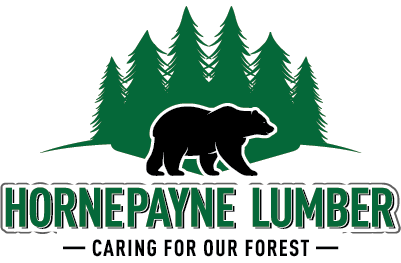Location
Hornepayne is 100km north of White River on Highway 631. Right in the heart of the Boreal Forest, Hornepayne is a heaven for sport fishing and hunting, and snowmobiling (among other awesome outdoor pursuits).
Established in 1915 as Fitzback when the transcontinental railway line was built through the area, the town's name was named after British financier Robert Horne-Payne in 1920 (though it's not known if he even visited).
This town may only have around 1,000 residents, but it boasts three elementary schools, a new high school, a 20-bed hospital, and the Hornepayne Community Arena with the attached C & D Curling Club.
Community Involvement
As an essential component of our social and organizational responsibility values we are committed to supporting community growth and betterment with monetary and in-kind donations. We believe in enhancing the community through initiatives that support positive social impact in the areas of economic development, education, and youth. We look forward to growing our future with people and trees.
First Nations
We have always taken a proactive approach to community engagement with First Nations, and we promote productive partnerships and economic opportunities for First Nations people through joint ventures, cooperative agreements and collaborative initiatives within the industry.
But action is better than words, so on November 29, 2017, we completed a ground-breaking partnership where the Missanabie Cree, the Chapleau Cree, and the Netamisakomik Anishinabek (Pic Mobert) First Nations became significant owners in Hornepayne Lumber and Hornepayne Power.
In addition, we have fibre supply agreements with First Nations bands that provide access to timber on land in their traditional territory and we encourage members of the First Nations community to participate in our Public Advisory groups. We are also proud to note that a significant number of our employees have aboriginal status.
